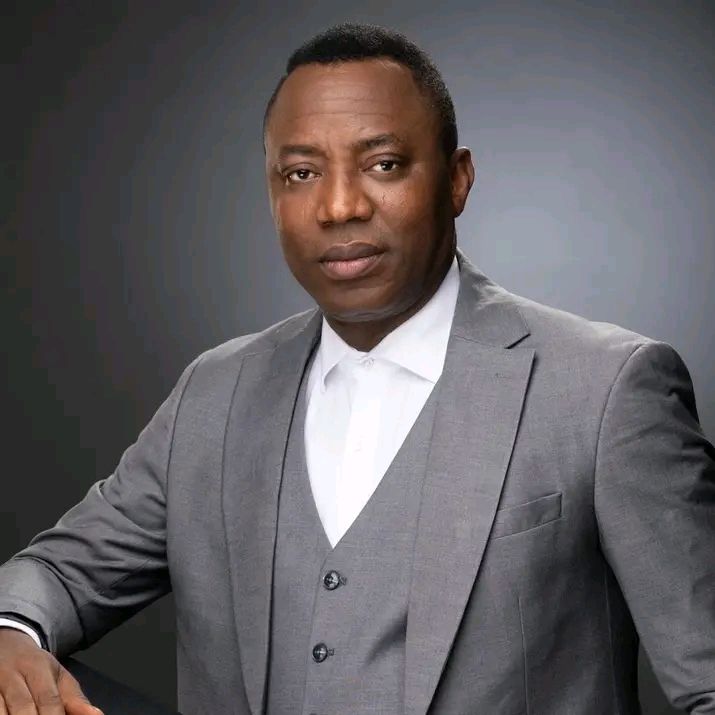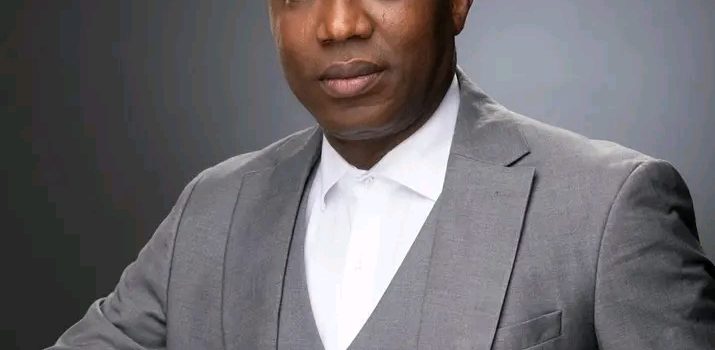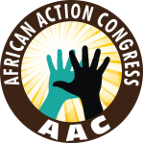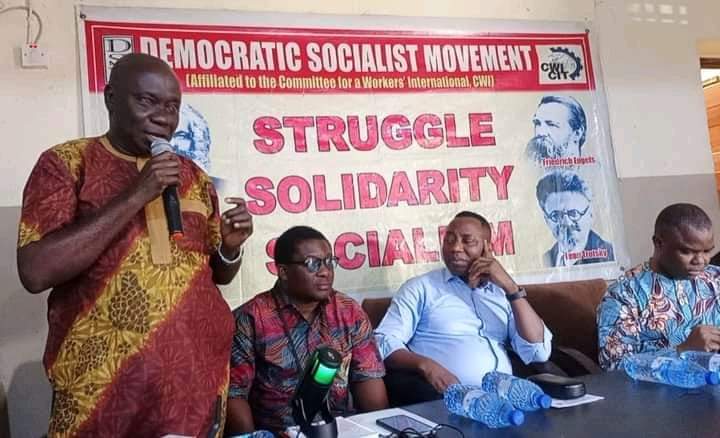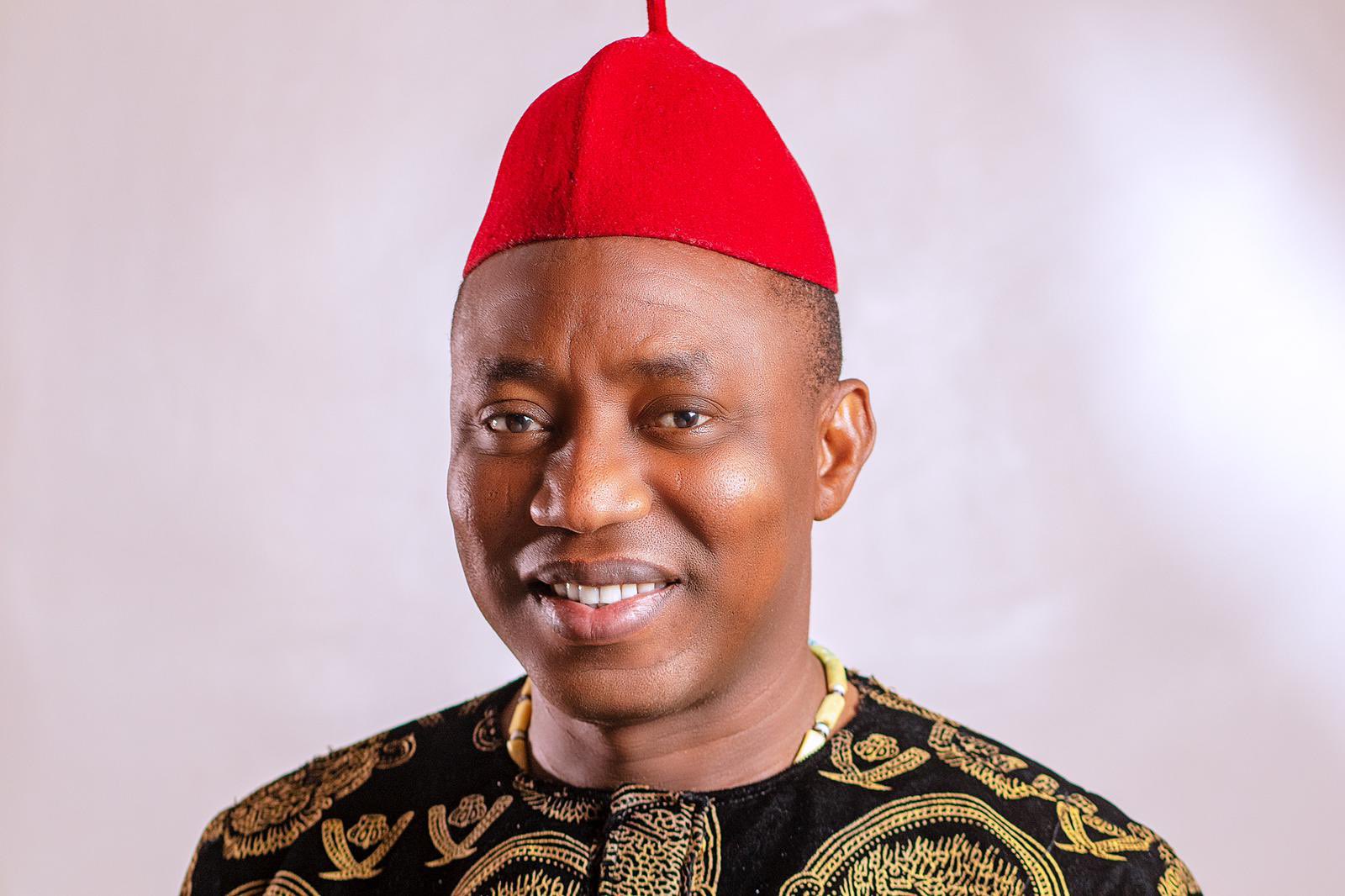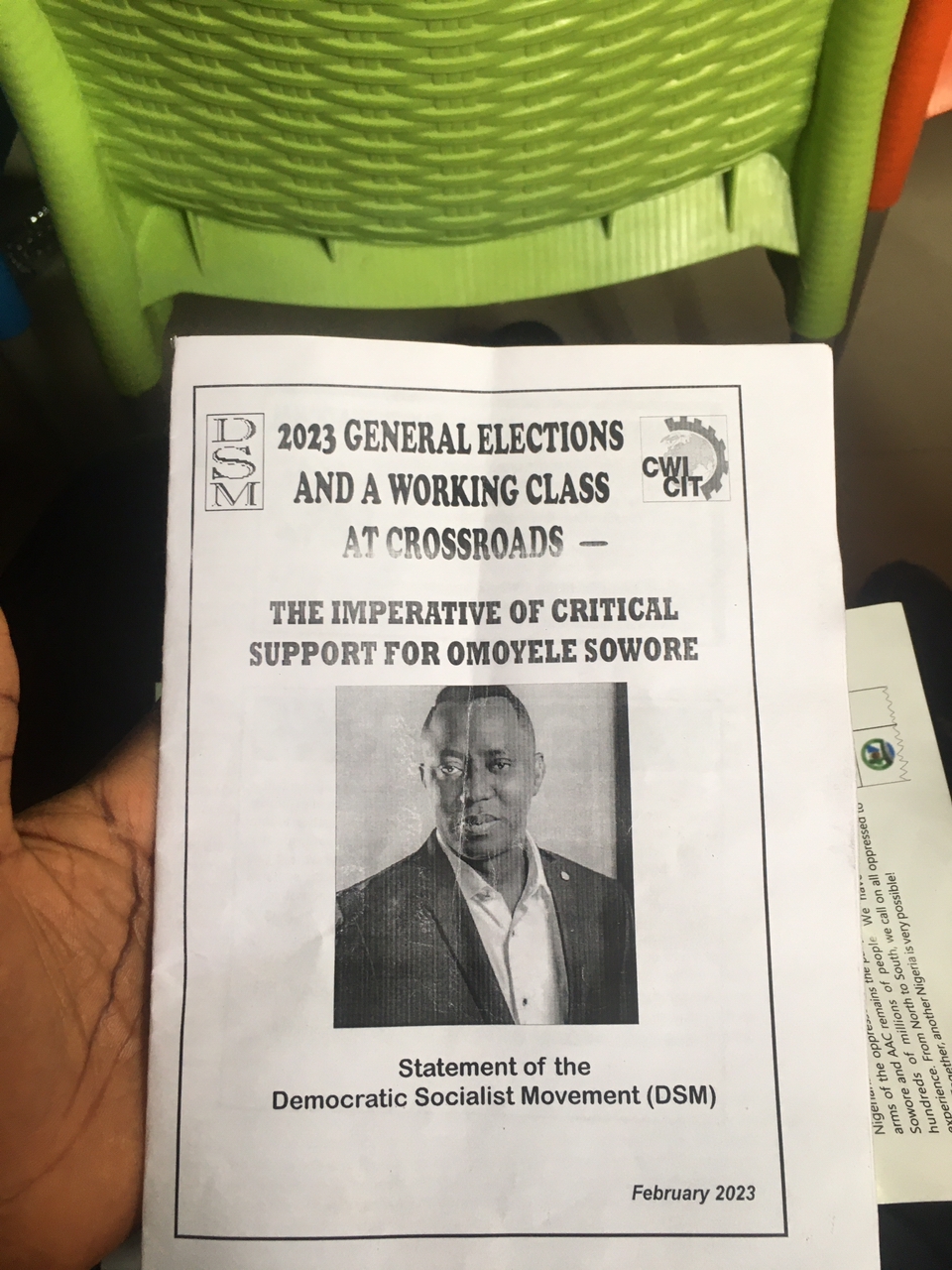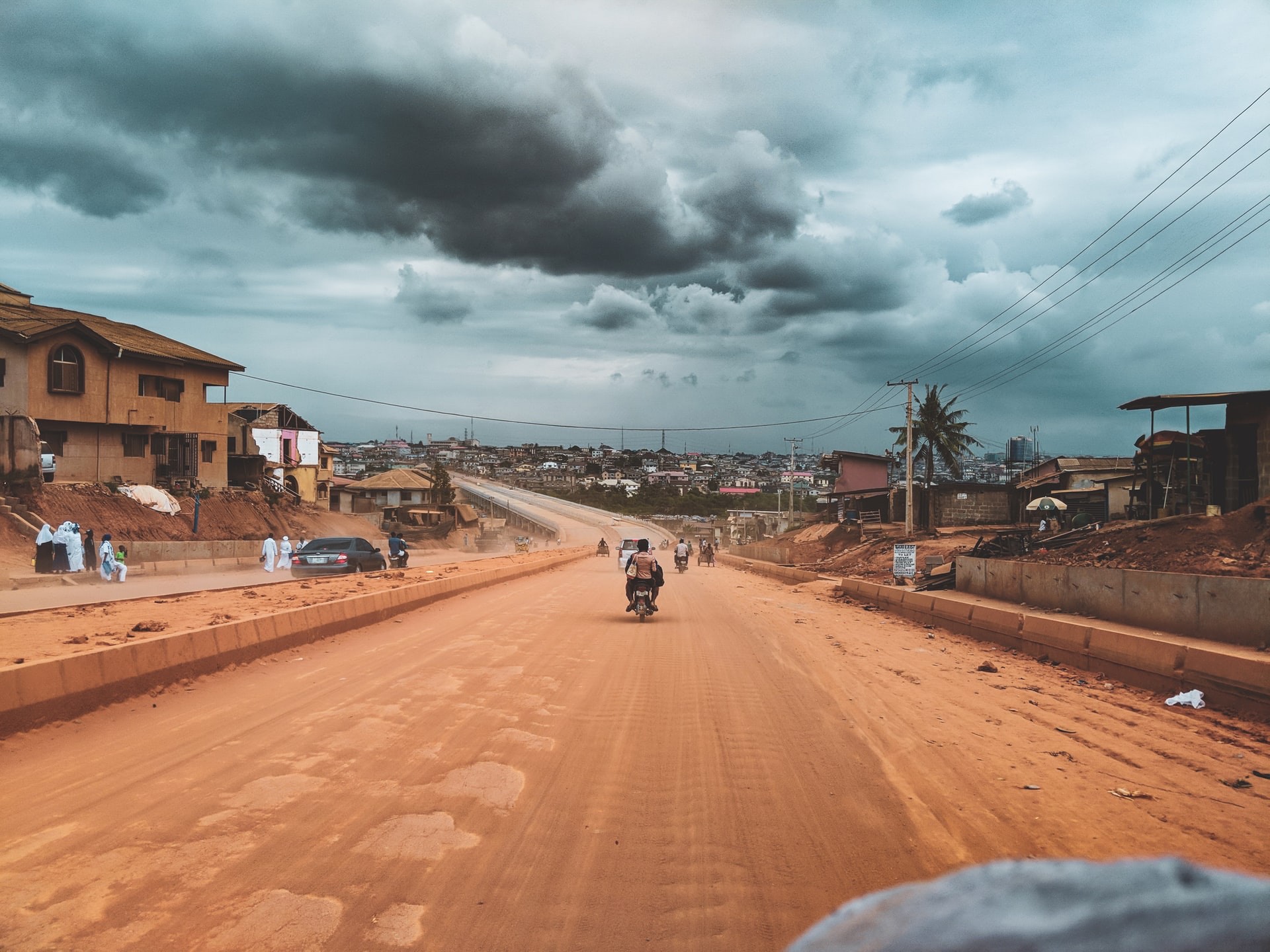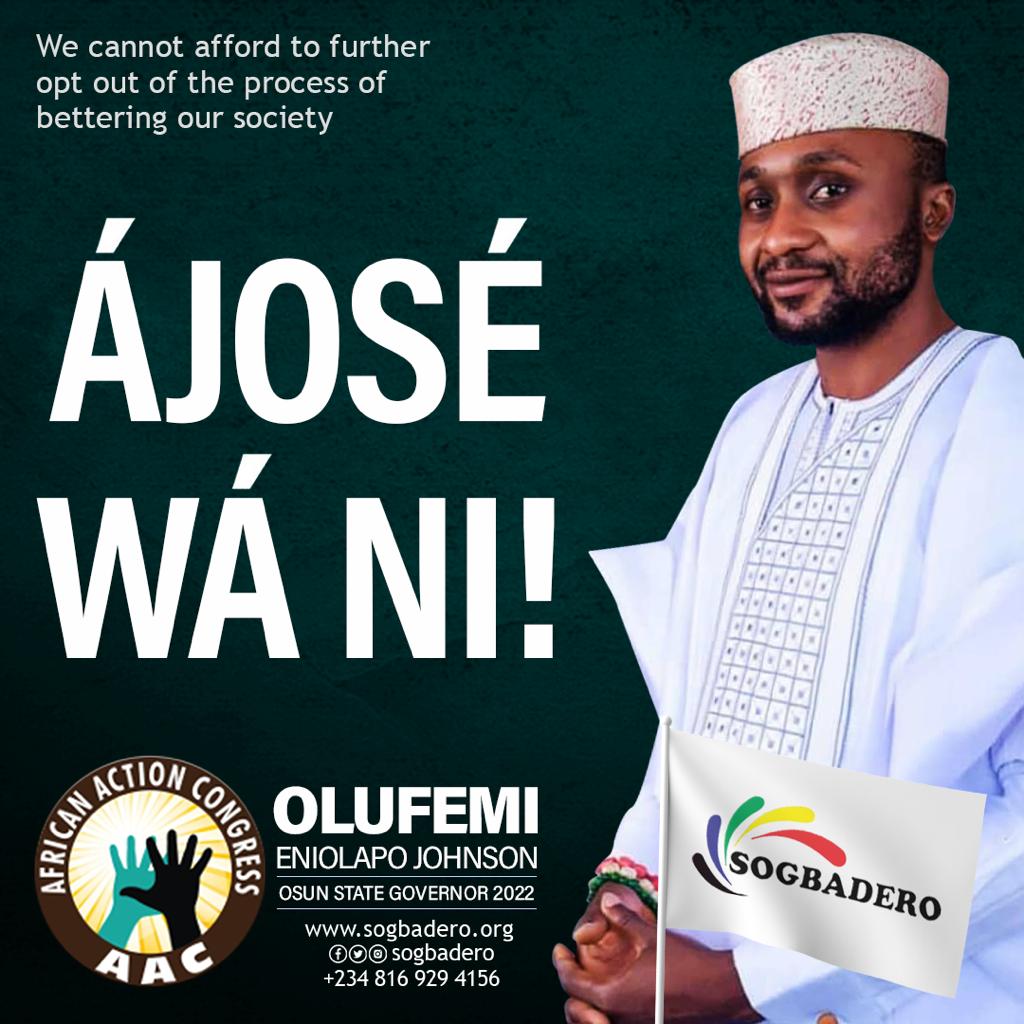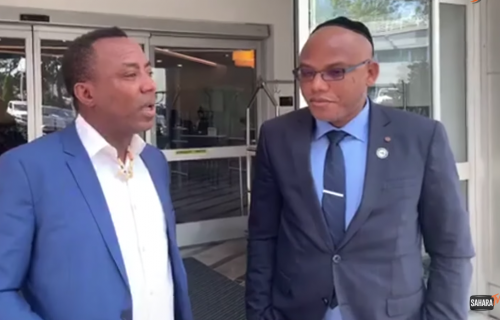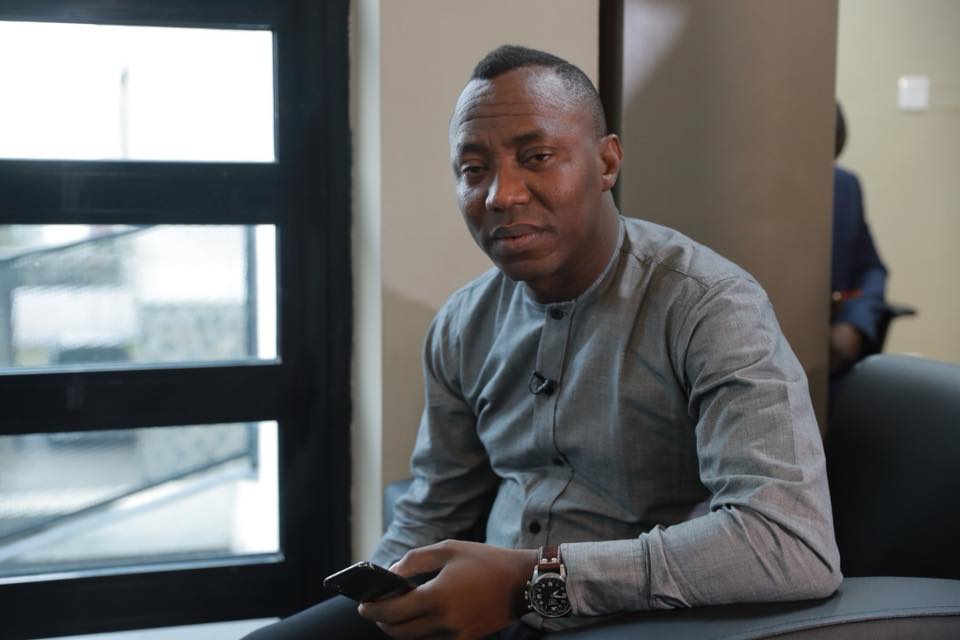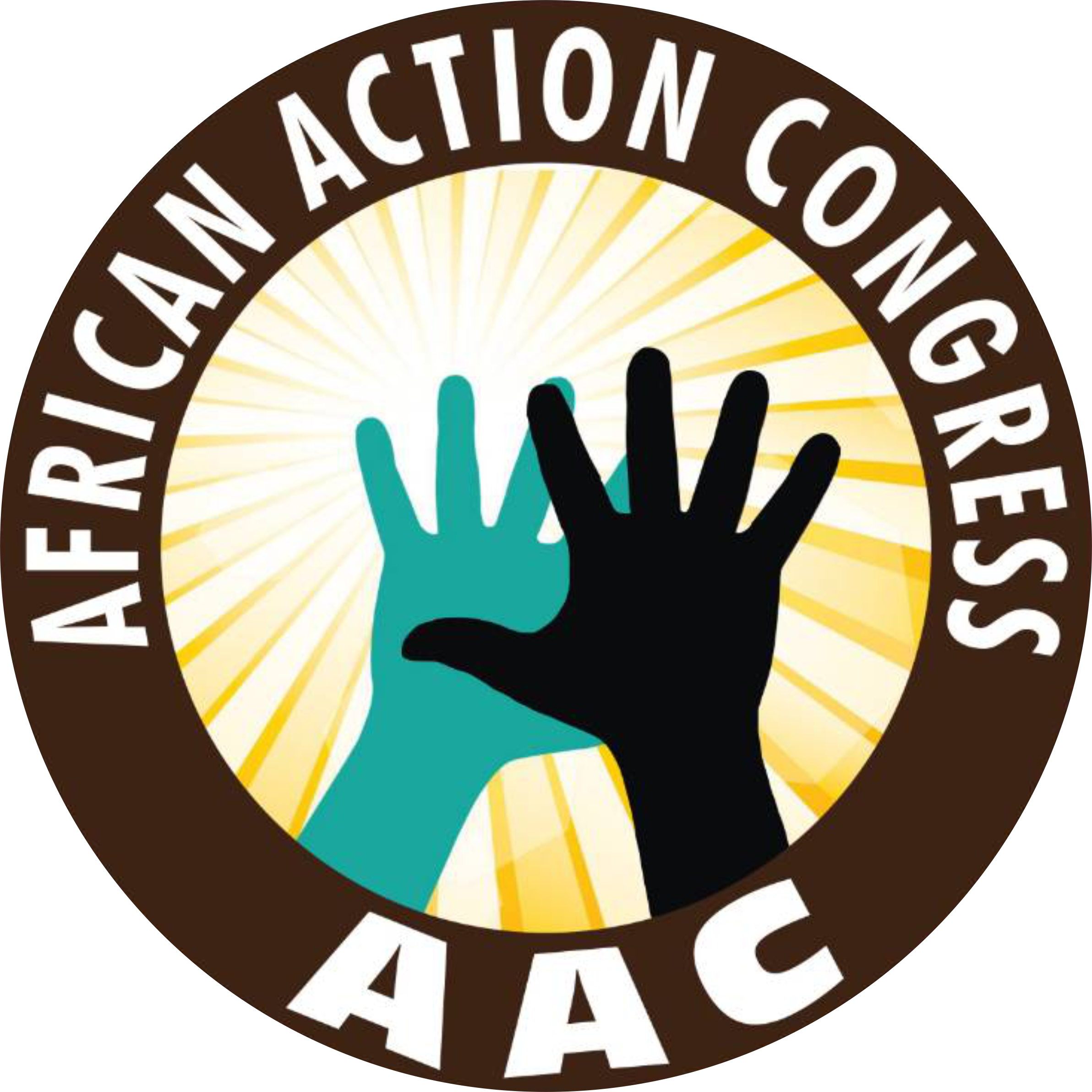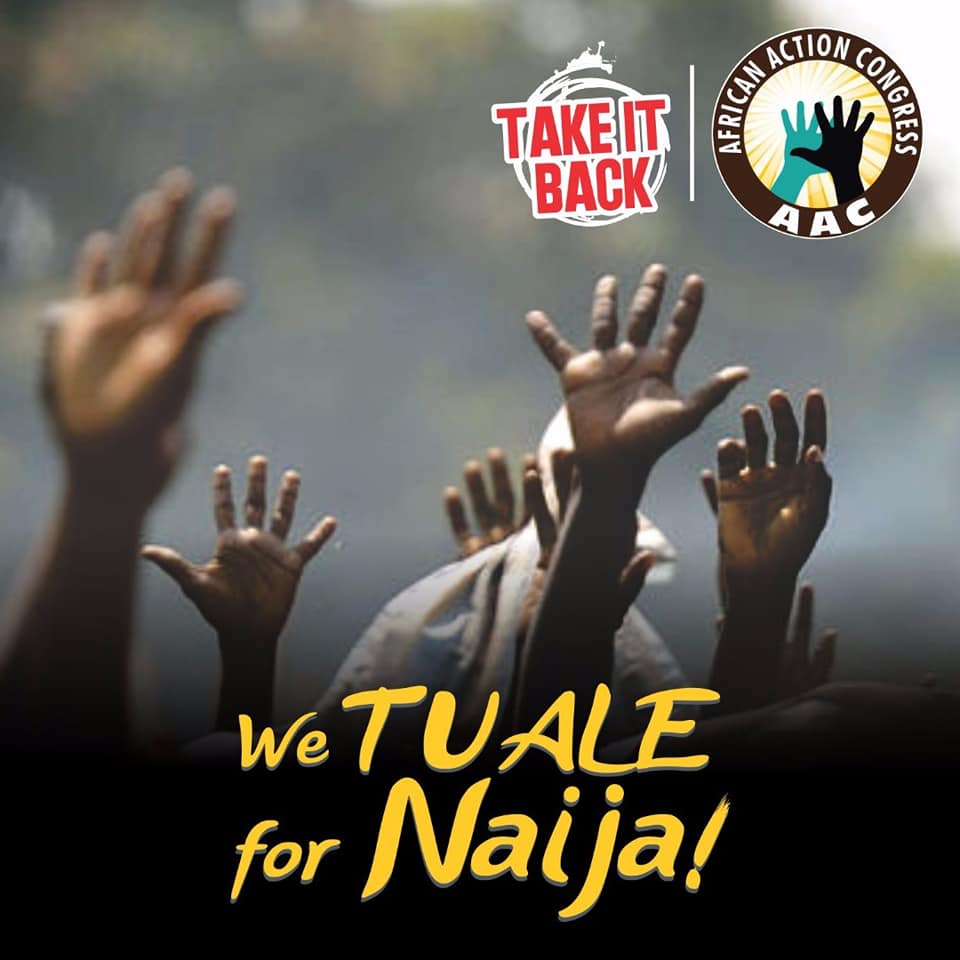African Action Congress (AAC) was registered as a political party by Nigeria’s Independent National Electoral Commission two years ago. From its radical roots it set itself apart as a platform for the struggle of the popular masses within and beyond the electoral sphere of politics. It has flourished unapologetically into a party for revolution. The AAC’s immediate fount and its scaffold to date is the Take It Back (TIB) movement, founded in the beginning of 2018. It has inspired tens of thousands of young working-class and professional/middle-class people across the length and breadth of the country and indeed globally among the Nigerian diaspora. This movement’s alliance with revolutionary socialist groups gave birth to the Coalition for Revolution (CORE) and the launch of its #RevolutionNow campaign.
The birth of the party
The Take It Back movement emerged at the beginning of 2018 in the contradictory context of radical politics in Nigeria. The world, as I pointed out while looking at the soil from which TIB/AAC germinated in an earlier article, had changed since the Great Recession of 2007-2009. The status quo’s hegemony or apparent legitimacy was fractured. Beyond Nigeria, mass movements spread across the world were bursting out as revolts, and in the Middle East and North Africa region, revolutions threw hitherto invincible dictators into the trashcan of history.
The “Occupy Nigeria” uprising in January 2012 was part of that moment of global rising. But the tragedy of the radical movement is that unlike the situation in many other countries this did not translate into organization to take the fire forward for deepening popular struggle in an anti-systemic manner. Four years after “Occupy Nigeria”, you could still put all self-avowed revolutionaries in the country into a molue (long bus) and still have to pe ‘ro s’oko (call in passengers to fill empty seats).
This partly accounted for an equally bankrupt party of the one percenters emerging as the apostle of “change” to steal power from the People’s Democratic Party (PDP), which had held the reins of government for 16 years and that felt it would for 44 more years. The All People’s Congress victory in 2015 spoke more to the failure of a credible revolutionary party’s emergence from the flames of Occupy Nigeria than to the resilience of a fortified bourgeois opposition at the time.
The seething mass anger, which burst out in 2012, continued to bubble below the surface like a dormant volcano, and the reality of the “change” party being nothing but one of “all promises cancelled” dawned on people within a few years of the APC coming into power. These combined to kindle the interest of a broader swathe of forces and persons in the 2019 elections than in any before this century. These included not a few (self-avowed revolutionaries and middle-class careerists alike) that take mobilization to win power only as seriously as they take watching Tom and Jerry on television. There were also quite a few who really did seriously think that they were taking power seriously.
Between March 2018 and the elections in February 2019, the TIB movement and the AAC organized no less than 500 political events across virtually every state in the federation, as well as 15 countries spread over all the regions of the world. Most of these had packed halls, with many people having to stand up or peer in from the window due to limited space. Unlike the rented crowds that the big—and of course bourgeois—parties, which alone could also amass followings of any significance, these were Nigerians who rather paid their way to the activities and were happy to support what they saw as a serious alternative project. The core message of the movement was clear: we need much more fundamental change than any of the parties involved in serious politics thus far could offer. And we are not going to get that on our knees. We will fight and win our liberation on the streets as much, if not more than, through the ballot.
Mass mobilization, including with the use of new information and communication technologies, went hand in hand with the establishment of movement or party structures. Inspired Nigerians of all walks of life at home and in the diaspora saw and became part of a movement that offered much more than they had dared hope for, even as much as they yearned for it. They chipped in their bits to sustain the hurricane.
The party raised 157,884,938 Naira (about US$408,000) as donations—most of these very small donations from tens of thousands of people. Never since the period of parties like the Action Group (AG) and Northern Elements Progressive Union (NEPU) had any political party raised such kind of money from “inconsequential” Nigerians. This is noteworthy, particularly for the mischievous, such as Adams Oshiomhole (a former trade unionist, governor of Edo State and national chairperson of AOPC), who try to reduce #RevolutionNow to a post-election afterthought.
The truth is that even during the electoral campaign the AAC did not reduce its politics to one of simply canvassing for votes. The party was on the streets organizing demonstrations for press freedom, extension of voter registration, and against demolitions of informal settlements. The ruling class was conscious of the problem that AAC constituted to them and they took action to suppress the party. As early as December 2018, five of its activists were arrested while pasting campaign posters in Lagos. They were charged with defacing other parties’ posters, even though this was demonstrably false. The state was sending out a clear message that it would not tolerate revolutionaries.
By the end of 2018, the TIB formed a coalition with the Alliance for the Masses Political Alternative (AMPA), which was coming together of Socialist Workers & Youth League (SWL) and Socialist Vanguard Tendency (SVT). The two groups had worked within the National Conscience Party (NCP) for a few years as the NCP Socialist Forum (NSF). The TIB had favored the NCP among myriad parties it held discussions with on which to float its electoral bid. The treacherous collapse of the NCP bureaucracy into an alliance with the PDP made real this possibility. Taking a principled stand, the two groups constituting the NSF pulled out of that party to form AMPA, which later brought on several other groups. The TIB-AMPA Coalition would later become known as the Coalition for Revolution—CORE.
After the elections, TIB/AAC-AMPA played a critical role in building resistance to wildly inflated power bills and epileptic power supply in working-class communities. Its activists, as part of CORE were also at the barricades in solidarity with rank and file workers during struggles, such as those of non-academic staff at Lagos State Polytechnic.
As radicalization of the party deepened in the immediate post-election period, the right-wing of the party played its hand as Esau for the Jacob of the state. The illegitimate splinter group that emerged under Leonard Ezenwa, the AAC national secretary before his suspension, was proclaimed to be representative of the party in a questionable court ruling in July. But even as the legal battle rages, the facts on the ground have made it tedious, if not outrightly impossible, for the state to stick to the fairy tale of an Ezenwa-led AAC.
The actuality of #RevolutionNow
The CORE’s launch of the #RevolutionNow campaign on August 5, 2019 was a milestone in the development of AAC and the history of Nigeria. It went beyond the 1948 Zikist Movement’s “A Call for Revolution,” to demanding “Revolution Now!” on the streets. On the launch day, a record five million people in the country searched the word “revolution” online. The movement thus placed revolution as a popular question in the minds of many more Nigerians than the left groupuscules preaching to the choir had done in decades.
Alas, the state repression was swift and brutal. Party chair, Omoyele Sowore, was arrested on the eve of the nationwide protest and all venues scheduled for rallies in every state of the federation were taken over by combined teams of the army, anti-riot police, and state security service (secret police), among others. In several states they took to flexing their muscles with patrols through the major roads and possible sites of mass gatherings. Notwithstanding, this brazen show of strength demonstrations was held in 14 of Nigeria’s 23 states. #RevolutionNow activists also took action in Berlin, Geneva, Johannesburg, London, New York and Toronto.
The largest of the demonstrations was in Lagos. About 150 activists had a faceoff with the police in front of the national stadium in Surulere, where the flag-off rally for the revolutionary campaign was meant to take place. At the end of the day 57 activists were arrested in six different cities across five states, and many of them were badly beaten up.
This hour marked not just the deepening of AAC’s radical politics. It was equally a watershed in its transformation into the driving force of a mass-based revolutionary movement. As with all such moments, there was confusion, even within the ranks of the left, as to what was happening. More than a few condemned such (in their view) rash declarations of revolution—as if revolutions were singular events and not processes that include affirmation around mobilization.
To some, it would have made sense for the August nationwide action to have been described as a “protest,” to avoid prematurely falling foul of the state. Obviously, such ideas, incidentally from comrades on the left, were backwards compared to those of Maureen Onyetenu a Federal High Court judge. On May 4, 2020, she ruled that the nationwide #RevolutionNow action was well within the realm of even bourgeois democratic rights, irrespective of what it was called. She further declared the state’s disruption of the protest as “illegal, oppressive, undemocratic and unconstitutional.”
The detention of Sowore for almost five months, and the absurd theatrics of the state security service in flouting rulings and respect for the courts, including the invasion of the federal high court premises at Abuja to re-arrest Sowore, also showed state suppression for what it is. The bail condition of restricting him to Abuja is partly face-saving by the ruling class, as well as a desperate attempt to try to take the winds from the sails of the emergent revolutionary movement.
Despite the COVID-19 lockdown, TIB/AAC continued with revolutionary agitation on important political issues with skillful use of social media. As soon as the confinement restrictions were lifted in June, TIB/AAC and its allies constituting the CORE continued organizing on the ground. This included a series of demonstrations in June in five cities against police brutality and the rising incidence of rape and femicide. The protesters also declared their solidarity with the global #JusticeForGeorgeFloyd movement.
Branches of the AAC in localities where police violence against poor citizens is rife—for example, in Oworonshoki where 16-year old Tina Ezekwe was killed by police in May—promptly organized community-based protests. Political education for party cadres was also introduced in this period, in the Lagos state chapter, where the first of a series of “education for revolution” programs are now running. The party is also back on the electoral trail with its radical agenda for the polls. It conducted well organized primaries to produce candidates for the forthcoming gubernatorial elections in Edo and Ondo states. Also, in May, The Socialist Workers and Youth League initiated a seven-week process for democratizing and consolidating the structures of CORE. The TIB and all but one affiliated organization supported these genuine aims. For the first time in its history, an inclusive and democratically elected leadership of the coalition emerged.
The new CORE leadership had barely one month to prepare for the commemoration of the launch of the #RevolutionNow campaign with the #August5thProtest. Despite myriad challenges, these were a success. In fifteen states, including Niger and Yobe where there was no action the previous year, activists took to the streets. Though most demonstrations were not large, the movement’s showing in Abuja and Lagos, the two main cities, outmatched the previous year’s demonstrations. More than 60 people demonstrated at the Unity Fountain Abuja. A busload of activists from a satellite of the capital was turned back at a checkpoint while trying to enter the city center. In Lagos, between 400 and 600 protesters took over the Ikeja roundabout compared to barely 150 persons in front of the national stadium a year earlier. Twice the police dispersed them and twice they regrouped, with popular support from traders, commuters, and residents where they rallied.
The state machinery of coercion was no less active in attempts to suppress these activities. More than 100 people were arrested in different parts of the country for participating in the demonstrations. These included 42 in Abuja, 22 in Lagos, seven in Osun, five in Abeokuta and the AAC Kano Chair in Kano city, who was released only recently. Working assiduously with the Revolutionary Lawyers Forum (RLF) and the Radical Mandate Agenda for the Nigeria Bar Association (RAMIMBA), the party and the CORE leadership ensured the release of all the arrested comrades.
Building the party—what is to be done?
The COVID-19 pandemic has driven home sharply the failures of the profit-before-people-basis of capitalism. The worst is yet to come. As the capitalist world lurches into what could very well be its worst social-economic crisis in history, the bosses will attempt to make the mass of poor people bear the brunt of an exploitative system. Working-class people and youth will have no choice but to fight back. Sparks of discontent will set off moments of spontaneous mass movements on the streets, in workplaces, and across communities. But these massquakes will dissipate like hot steam and the bosses will still have their way, if there is no mass-based revolutionary organization that like a steam engine, can turn the steam of mass anger into motion of lasting struggle for system change. But there is still so much to do in building the party, movement, and coalition for revolution.
Probably the top priority is a systematic and intensive approach to cadre education. As we learn from Che Guevara, “the first duty of a revolutionary is to be educated.” The education he means of course, is not that which you acquire in the four walls of school, but rather questioning why society is how it is, what alternatives could be constructed from concrete reality to change how society is, and how we go about struggle to bring to birth the better society we desire. This education is one which we get from the largest university in the world—the school of life.
However, the dominant ideas through which the direct lessons from life are perceived are shaped by the interests of the dominant classes of oppressors in any society. What immediately appears to us as “common sense,” even the most radical of such, tends to be inadequate for the thinking we need to overthrow the oppressive system we find ourselves in. To forge the “good sense,” which alone can help us grasp the tasks and strategy for what is to be done as revolutionaries requires education to deepen our theoretical understanding. That is precisely why Vladimir Lenin said, “without revolutionary theory, there can be no revolutionary movement.” The time is ripe to consider establishing a living party school and research center, which harnesses and enriches decentralized education for revolution programs in all branches.
The party must build its capacity for producing, distributing, and facilitating the study of revolutionary literature. Pamphlets, leaflets, and books must be part of the mental staple food of party cadres. The fantastic use of social media, and other audio-visual means have to be taken to a new level to ensure deeper cadre and mass political education. We must also learn from the strengths (and weaknesses) of historical and contemporary revolutionary party-building projects. Drawing from some of these and contextualizing them concretely, the party has to develop intervention programs that have meaning to working-class people and youth in their daily lives.
For example, AAC cadres across the country could set aside a day every few months for “environmental sanitation” exercises. Free tutorial/coaching for children of poor working-class people could be organized. This could include e-learning through webinars, with children from poor working-class homes who might not be able to afford data being provided airtime to join. Physical contact sessions must however be prioritized as much as possible.
Free breakfast programs could be developed, as the Black Panthers in the US did. These, and similar programs, are not to be conducted in the supposedly non-political manner that NGOs render services. Our politics must run as the thread that ties these expressions of alternative power as much as service delivery together, and link the party’s social provision intervention with its more partisan political mobilization for revolution work. The party program and our class orientation are two vital issues that must be clearly addressed at this point.
The AAC manifesto as adopted at the 2018 party convention reflected a shotgun marriage arrangement with the party’s right-wing at the time. As we pointed out in the January-February 2019 edition of Socialist Worker:
The movement of #TIB is moving more and more to the left. There are internal struggles with a party right-wing in AAC ready to uphold the status quo of capitalism, merely with some “decency”, so to speak. But what the movement as a whole seeks is the revolutionary upturn of the exploitative system and as it gets more engaged in mass work, this orientation deepens.
Events thus far have confirmed this analysis. An overhaul of the AAC manifesto to reflect its politics of struggle for social system change is now imperative. This must be a program that addresses the social, economic, political, and ecological problems of the day with a view to bring about fundamental transformative change. This change must break from the logic of growth and development that has pauperized the majority of the population and put the earth in the perilous state of climate crisis. We need to formulate a revolutionary program for a party of revolution.
The orientation of AAC to working-class people has never been in doubt. The party membership includes young professionals; middle-class change-seeking Nigerians, who are fed up with the disaster life has become for all but the 1% of super-rich people in the country. It also includes students as well as working-class people, who constitute a significant proportion in the ranks of the party. Revolutionary political parties can lead revolutions, but revolutions are never waged and won by any one party. Revolutions are massive anti-systemic uprisings of the mass of working-class people. AAC has to strengthen its ties with all strata of workers, artisans, poor farmers etc. We must be the tribune of all exploited and oppressed sections of the population.
AAC activists in several states have joined workers on strike at the barricades, supported and fought alongside the people in poor working-class communities for electricity rights and against police brutality, and organized political education programs for workers in both the formal and informal sector. Such activities must become generalized, a normal part of revolutionary politics across all states of the federation. Organization for revolution requires unification-in-action of many social forces, parties, and other groups committed to struggle, with the aim of bringing down the oppressive system of exploitation that determines the status quo. This entails building united fronts. CORE is the united front for revolution now. Building CORE with other affiliates of the coalition must be a key priority for AAC’s revolutionary activists. This will involve constituting CORE in all states where we have TIB structures along with other affiliates’ chapters, and expanding the coalition’s affiliation base to include all organizations who stand for revolutionary transformation today.
The unfolding revolutionary movement that TIB/AAC/CORE sharply manifests in Nigeria is an integral wave in the global tsunami of popular risings against exploiters and their oppressive system. Internationalism must thus be woven into the fabric of our struggle. The primary devil we confront is at home, but our battle is against all the powers and principalities of the hellish exploitation of the masses. An injury to one is an injury to all. We must continue to call on our sisters, brothers, comrades, and revolutionary organisations across the world to stand with us as we fight our battles for #RevolutionNow.
The mission of our generation, rising from the obscurity of neoliberalism, is global revolution—to build a better and more just world. We must not betray it. Working-class people united and determined cannot be defeated!
